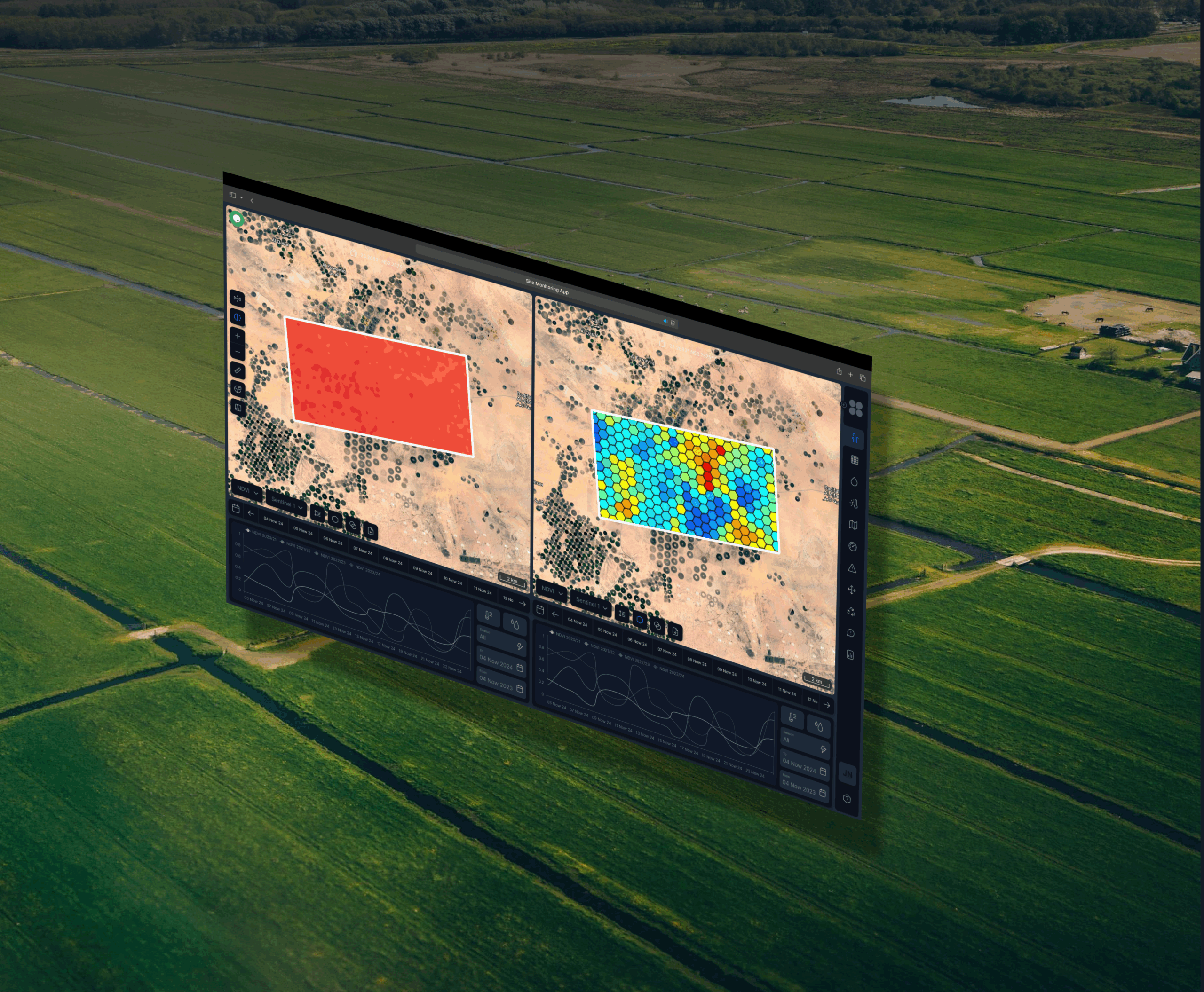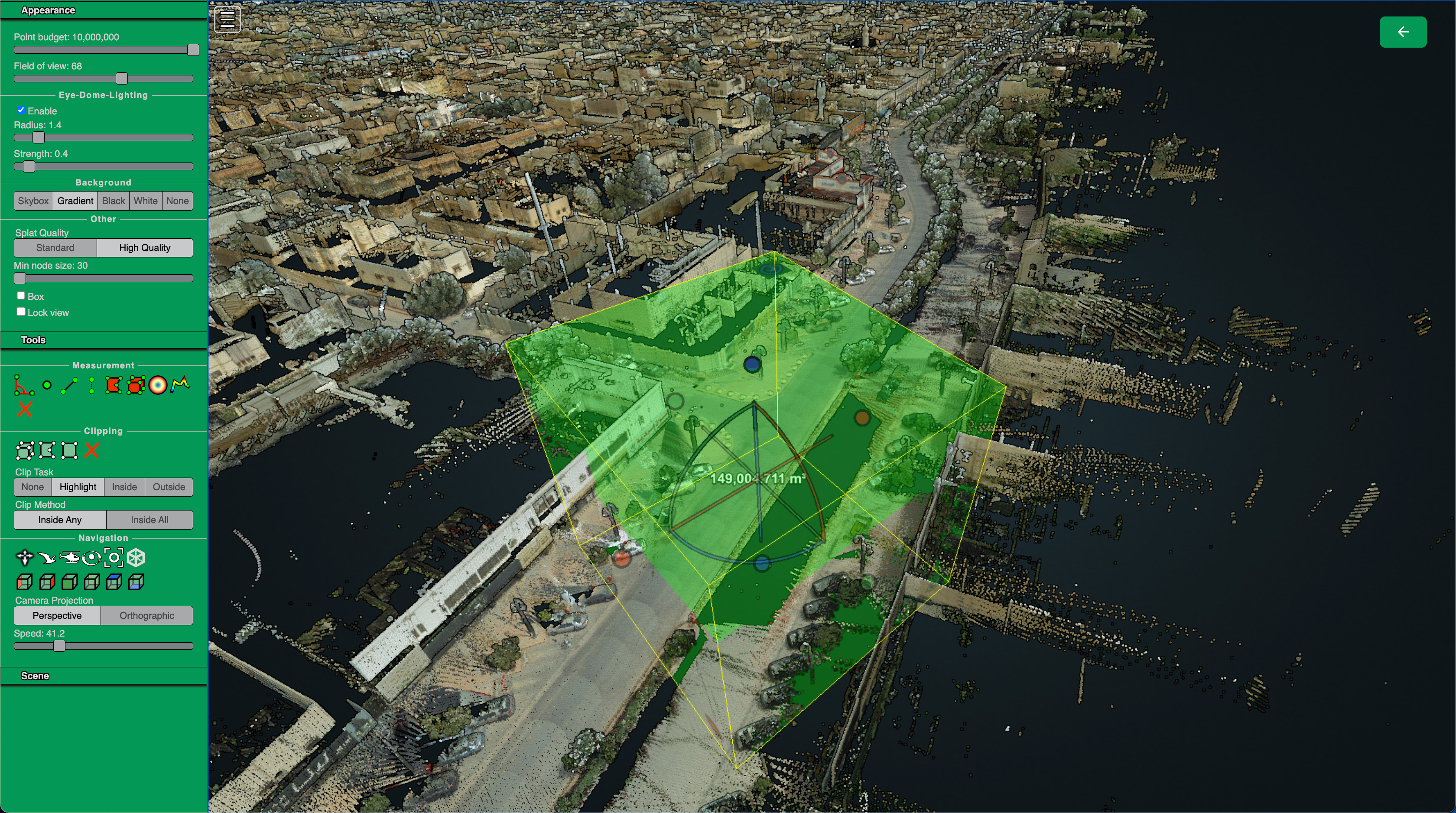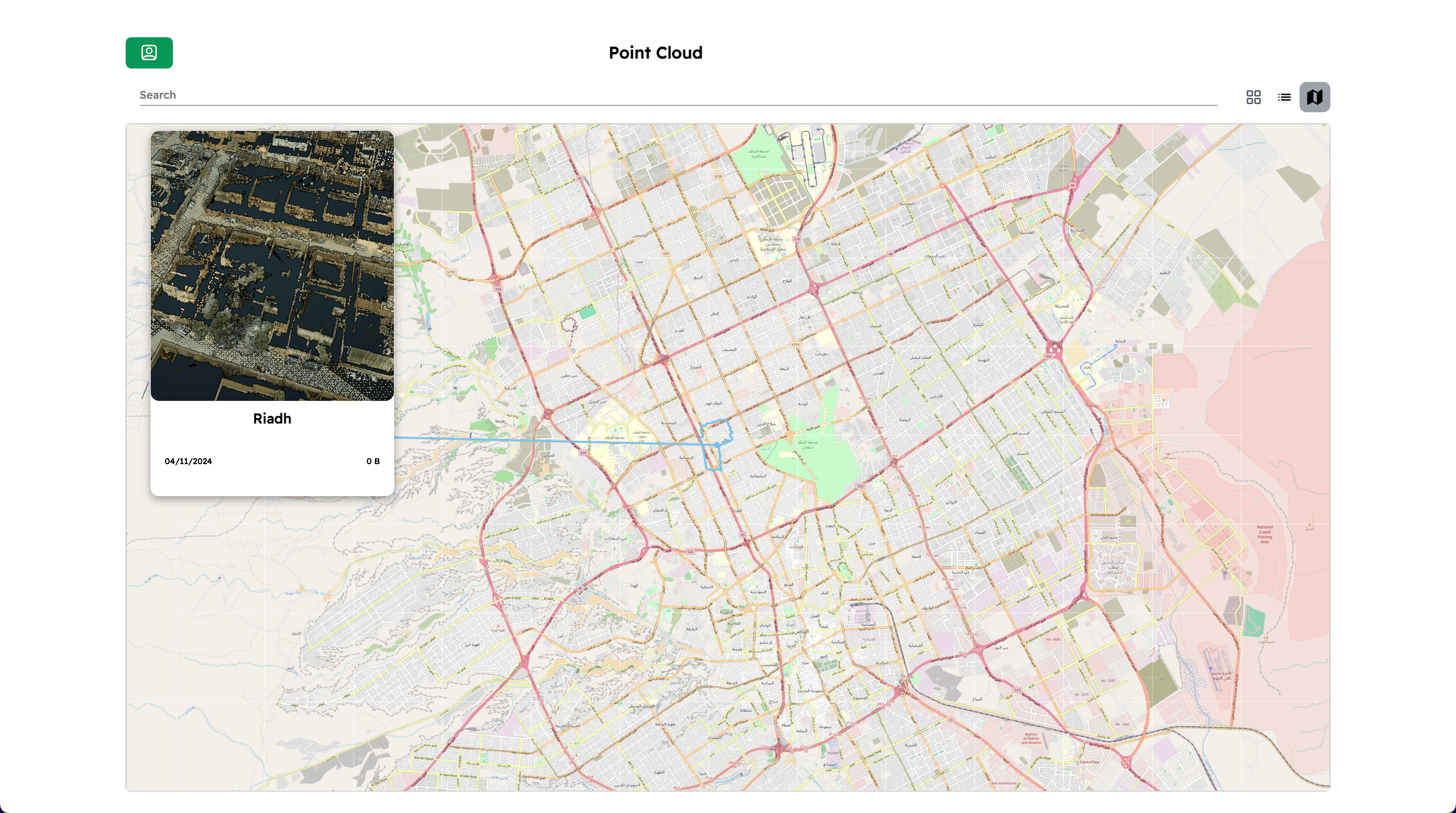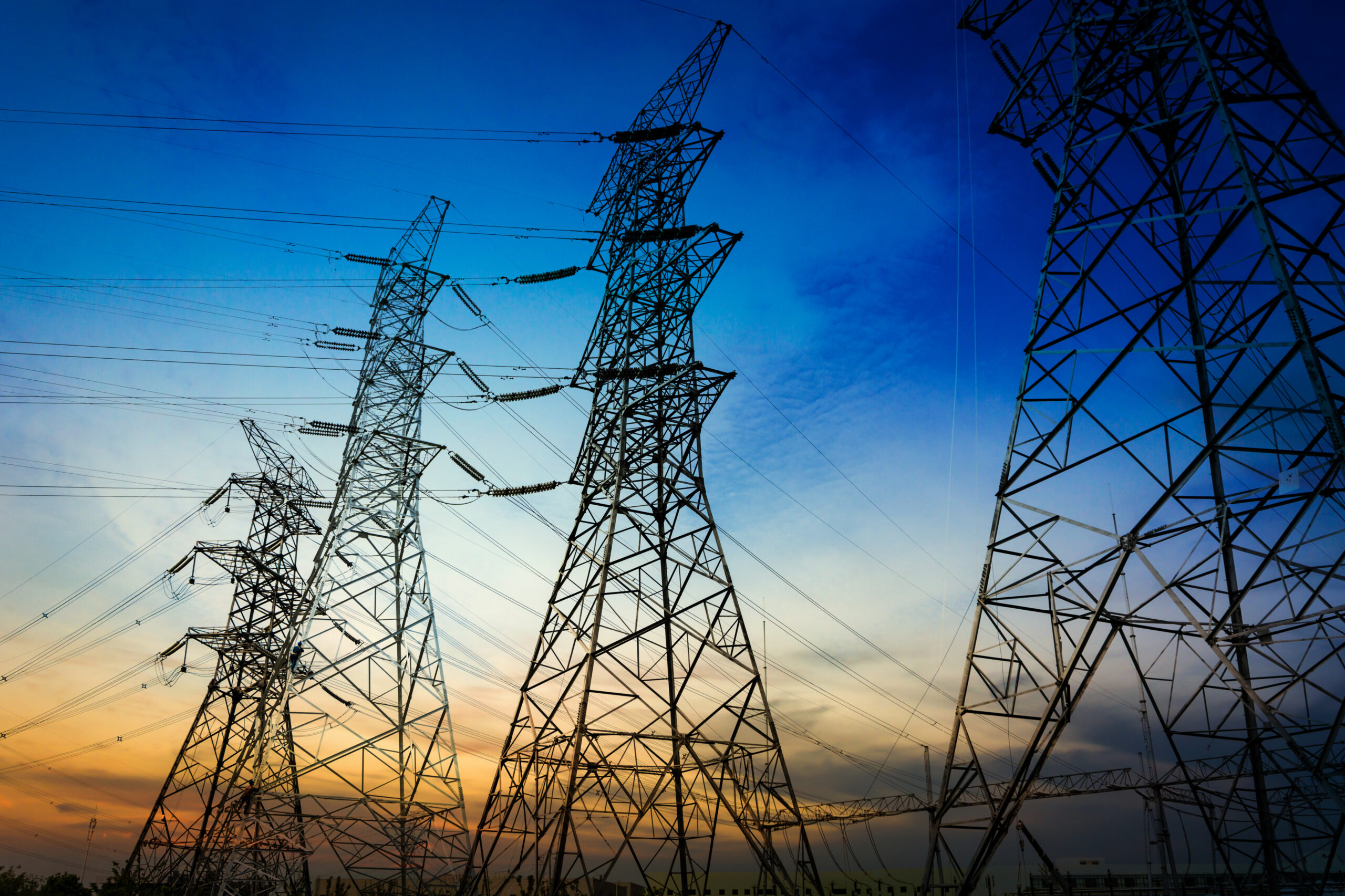What Clients Say About Our GIS & Data Projects
How Agritech Solves Key Challenges in UK Farming
Pain Points & Solution Narrative
| Pain (UK farms) | AgriTech Solution & Impact |
|---|---|
| High resource costs (fertilizers, water, fuel) | Precision farming (VRT, sensors, IoT) and zonal maps reduce inputs: fertilizers by up to −80%, pesticides by up to −80%, water by up to −50%, diesel by up to −50%. |
| Low productivity and unstable yields | AI analytics, robotic systems, and soil/vegetation monitoring increase yield by up to +62% and balance field performance across zones. |
| Climate risks: drought, soil degradation | Smart irrigation, weather monitoring, and automated irrigation/protection rules minimize losses and stabilize production. |
| Fragmented data and complex management | Cloud platform + mobile apps + DSS provide a unified control panel (weather, soil, satellite/drone, machinery), enabling faster decisions in peak windows. |
| Traceability and quality requirements | Digital platforms and blockchain ensure transparent supply chains, standards compliance, and ready-made reports. |
| Labor shortage and aging farmers | Robotics, operations automation, and remote monitoring reduce physical workload and improve process stability. |
| Market access and fair pricing | E-commerce platforms and marketplaces simplify market entry, optimize sales, and support better producer pricing. |
Scientific Publications
Papadopoulos, G., Arduini, S., Uyar, H., Psiroukis, V., Kasimati, A., & Fountas, S. (2024). Economic and environmental benefits of digital agricultural technologies in crop production. Smart Agricultural Technology.
Latherow, T., Arnoult, M., Engel, T., Gralfs, R., Hrynevych, O., Karampoiki, M., Mahmood, S., Murdoch, A., Paraforos, D., Ranieri, E., Todman, L., Tranter, R., & Hammond, J. (2024). Optimising Precision Agriculture Choices for Arable Farmers in Germany and the UK: the LINKDAPA Approach. EuroChoices.
Kumar, V., Sharma, K., Kedam, N., Patel, A., Kate, T., & Rathnayake, U. (2024). A Comprehensive Review on Smart and Sustainable Agriculture Using IoT Technologies. Smart Agricultural Technology.
Higgins, S., Schellberg, J., & Bailey, J. (2019). Improving productivity and increasing the efficiency of soil nutrient management on grassland farms in the UK and Ireland using precision agriculture technology. European Journal of Agronomy.
Javaid, M., Haleem, A., Khan, I., & Suman, R. (2022). Understanding the potential applications of artificial intelligence in agriculture sector. Advanced Agrochem.
Elbasi, E., Mostafa, N., AlArnaout, Z., Zreikat, A., Cina, E., Varghese, G., Shdefat, A., Topcu, A. E., Abdelbaki, W., Mathew, S., & Zaki, C. (2023). Artificial Intelligence Technology in the Agricultural Sector: A Systematic Literature Review. IEEE Access.
Spanaki, K., Karafili, E., Sivarajah, U., Despoudi, S., & Irani, Z. (2021). Artificial intelligence and food security: swarm intelligence of AgriTech drones for smart AgriFood operations. Production Planning & Control.
Dhillon, R., & Moncur, Q. (2023). Small-Scale Farming: A Review of Challenges and Potential Opportunities Offered by Technological Advancements. Sustainability.
Panyala, V., & Bakshi, U. (2025). Business Opportunities and Agricultural Sustainability in the Future Era of AgriTech. Involvement International Journal of Business.
Khan, N., Ray, R., Sargani, G., Ihtisham, M., Khayyam, M., & Ismail, S. (2021). Current Progress and Future Prospects of Agriculture Technology: Gateway to Sustainable Agriculture. Sustainability, 13.
Fox, G., Mooney, J., Rosati, P., & Lynn, T. (2021). AgriTech Innovators: A Study of Initial Adoption and Continued Use of a Mobile Digital Platform by Family-Operated Farming Enterprises. Agriculture.
Khedekar, L., Dagade, R., Dahatonde, V., Dane, R., Dangat, S., Deore, P., & Dgama, N. (2024). AgriTech: Technology Driven E-Commerce Platform for Sustainable Agricultural Development. 8th International Conference on I-SMAC (IoT in Social, Mobile, Analytics and Cloud).
Pawar, S. (2024). IoT Solutions in Agriculture: Enhancing Efficiency and Productivity. IJISRT.
Rehman, A., Saba, T., Kashif, M., Fati, S., Bahaj, S., & Choudhary, H. (2022). A Revisit of Internet of Things Technologies for Monitoring and Control Strategies in Smart Agriculture. Agronomy.
Let’s Build Your Next Agritech Solution
Whether you’re planning precision mapping, data integration or an AI-powered MVP, our UK-ready teams deliver measurable impact from day one.
Proven Experience. Measurable Impact.
With 390+ international projects and 6+ years of LiDAR and GIS expertise, we bring precision and reliability to every geospatial challenge.
Top 3 Agritech Benefits Driving Productivity, Efficiency and Sustainability in UK Farming
AgriTech is transforming UK agriculture by improving yields, reducing costs and supporting sustainability. Below are the top three measurable benefits that demonstrate its real-world impact on farms and agribusinesses.
| Agritech Benefit | Description |
|---|---|
| Higher Productivity and Yields | Precision agriculture, automation and data analytics increase crop yields by up to 62% while reducing labour needs by up to 97%. |
| Lower Costs and Resource Optimisation | Smart application of fertilisers, pesticides and water cuts input use by up to 80% and fuel consumption by 50%. |
| Improved Environmental Sustainability | Reduced chemical use and data-driven resource management lower emissions and environmental impact, supporting net-zero goals. |
Scientific Publications
Papadopoulos, G., Arduini, S., Uyar, H., Psiroukis, V., Kasimati, A., & Fountas, S. (2024). Economic and environmental benefits of digital agricultural technologies in crop production: A review. Smart Agricultural Technology.
Saikinov, V., Zolkin, A., Bostanova, P., & Bespalova, V. (2024). The economic impact of precision farming on sustainable agricultural development. EKONOMIKA I UPRAVLENIE: PROBLEMY, RESHENIYA.
Getahun, S., Kefale, H., & Gelaye, Y. (2024). Application of Precision Agriculture Technologies for Sustainable Crop Production and Environmental Sustainability: A Systematic Review. The Scientific World Journal.
Balafoutis, A., Beck, B., Fountas, S., Vangeyte, J., Wal, T., Soto, I., Gómez-Barbero, M., Barnes, A., & Eory, V. (2017). Precision Agriculture Technologies positively contributing to GHG emissions mitigation, farm productivity and economics. Sustainability.
Maffezzoli, F., Ardolino, M., Bacchetti, A., Perona, M., & Renga, F. (2022). Agriculture 4.0: A systematic literature review on the paradigm, technologies and benefits. Futures.
Get a Free Technical Consultation
Discuss your data challenges with our AgriTech expert — no obligation, no sales pitch.
Agritech FAQs — Answers to Common Questions from UK Farmers and Agribusinesses
Still deciding how AgriTech fits your farm or project?
Here are clear answers to the most frequent questions about GIS, AI and agriculture technology delivery.
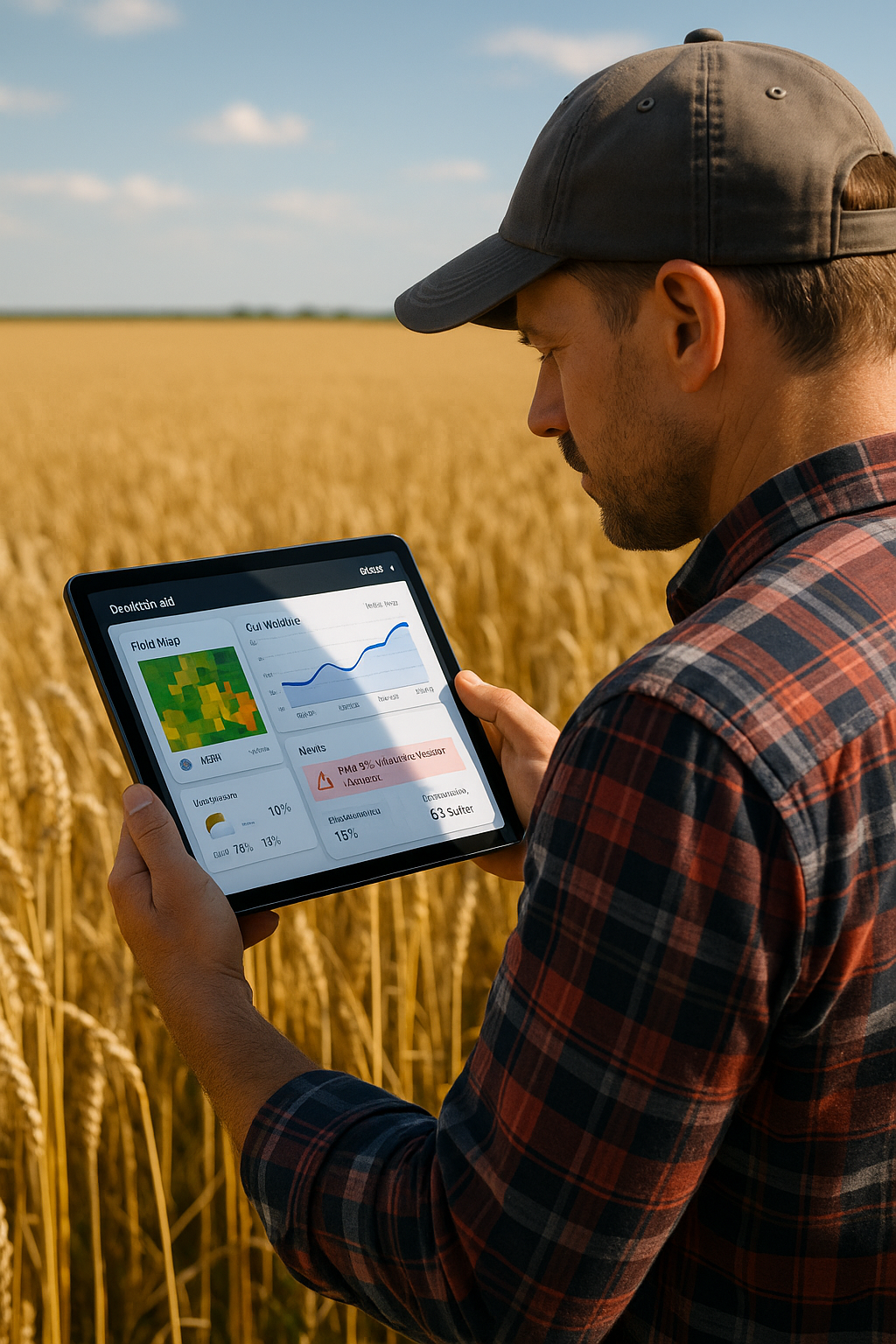
-
What exactly is Agritech — and how is it different from farm software?
Agritech combines GIS, sensors, AI/ML and data analytics to make field operations more efficient and sustainable.
Unlike typical farm management software, Agritech platforms focus on spatial data — fields, soil zones, yield maps, and resource variability — turning raw data into actionable intelligence. -
What about data privacy and compliance in the UK?
Data stays under full client control with role-based access, encryption and audit trails.
We align with UK GDPR, Defra’s digital farming guidelines and sustainability reporting standards. -
Can you work with farms outside the UK?
Yes — while our core expertise focuses on UK and EU agriculture, our GIS and AI models are scalable globally and adaptable to regional data and compliance frameworks.
-
What’s the difference between GIS mapping and AI analysis?
GIS provides the spatial foundation (mapping, zoning, elevation models), while AI adds predictive insights — yield forecasts, irrigation optimisation, and crop health detection.
-
Do we need to hire technical specialists to use the system?
No — our managed teams handle setup, calibration and maintenance.
Farm staff only need minimal training to interpret dashboards and act on insights.
Connect Your Fields, Data and Decisions
United Kingdom
Devonshire str., 41, Ground Floor, London W1G 7AJ, UK
Germany
Estonia
Harju maakond, Tallinn, Kesklinna linnaosa, Kaupmehe tn 7-120, 10114, Estonia
Ukraine
Lviv, Sadova street, 2a/1
AgriTech: The Digital Transformation of UK Agriculture
AgriTech and Agricultural Technology — powered by GIS and AI-driven solutions — are rapidly reshaping the landscape of UK farming, turning traditional agriculture into a data-intensive, high-tech industry. British agriculture is steadily transitioning toward data-driven and sustainable farming systems, where digital technologies, artificial intelligence, and geospatial analytics have become integral to everyday farm management.
The implementation of AgriTech solutions not only boosts productivity and operational efficiency across UK farms but also helps British farmers achieve sustainability and net-zero goals by reducing environmental impact and optimizing the use of resources.
How AgriTech is Transforming British Farming
The evolution from traditional to technology-driven agriculture in the UK has been fueled by the large-scale adoption of digital farming and precision agriculture practices. Modern British farms increasingly rely on GIS mapping, enabling them to create detailed digital field maps with centimeter-level accuracy, monitor soil variability, and optimize the use of every hectare of land.
Artificial Intelligence and AI analytics are revolutionizing daily farm management by processing massive volumes of data collected from sensors, satellites, drones, and on-ground equipment. Machine learning models analyze historical datasets on crop yields, weather conditions, soil quality, and plant health to deliver predictive insights that guide optimal agronomic decisions.
Automation has emerged as a key driver of change — from smart irrigation systems that respond in real time to soil moisture data, to autonomous machinery capable of performing tillage, seeding, and harvesting without human intervention. Data integration brings together inputs from IoT devices, weather stations, and high-precision GNSS/RTK positioning systems into unified management platforms.
Practical examples include yield mapping, which visualizes productivity across every section of a field to identify underperforming zones, and compliance reporting, which automates the creation of regulatory documentation for fertilizer and pesticide usage in accordance with UK environmental standards.
Industries
Key Benefits of AgriTech for Farmers and Agribusinesses
The adoption of agricultural technologies delivers measurable economic and environmental benefits for British farmers, backed by numerous studies and real-world results.
- Increased Productivity and Yields
Precision agriculture, automation, and data analytics can boost crop yields by up to 62%, while reducing labor requirements by as much as 97%. This is particularly relevant in the UK, where the shortage of skilled agricultural workers remains a significant challenge. Precision farming ensures optimal growing conditions across every microzone of a field by accounting for soil variability, topography, and microclimate.
- Cost Reduction and Resource Optimization
Smart application systems enable farmers to cut fertilizer, pesticide, and water usage by up to 80%, and fuel consumption by around 50%. This is achieved through targeted, site-specific application — delivering inputs only where and when they are needed — instead of blanket coverage. For UK farmers facing rising energy and agrochemical costs, such efficiency gains are crucial for maintaining profitability.
- Environmental Sustainability
By minimizing chemical inputs and leveraging data-driven resource management, AgriTech helps reduce greenhouse gas emissions and the overall environmental footprint of farming, supporting the UK’s net-zero commitments. Precision agriculture technologies optimize the use of nitrogen fertilizers — a major source of nitrous oxide emissions — while smart irrigation systems reduce pressure on water resources, an increasingly important factor amid rising drought frequency in southern regions.
These advantages position AgriTech not just as an innovation trend but as an essential foundation for long-term sustainability and competitiveness in British agriculture.
Meet the Team
Practical Applications / Use Cases
Variable-Rate Application (VRA)
Variable-rate technology automatically adjusts input rates — fertilizers, seeds, or crop protection agents — based on localized field conditions. Integrated with GPS-enabled machinery and GIS-based prescription maps, VRA systems determine optimal application rates for each field zone with high precision.
Irrigation & Soil Monitoring
Smart irrigation systems rely on a network of IoT sensors to continuously track soil moisture, temperature, and related variables. AI algorithms analyze weather forecasts and plant transpiration data, activating irrigation only when necessary — saving 30–40% of water compared with traditional methods.
Crop Health Monitoring (Satellite, Drone, AI)
Remote sensing technologies using satellite imagery and drones allow for real-time monitoring of crop health. Multispectral cameras capture light across visible and infrared spectra, while AI models detect early signs of plant stress, disease, or nutrient deficiency long before they become visible to the human eye.
Compliance & Reporting Automation
Automated compliance systems log every agronomic operation — from fertilizer application to pesticide spraying — creating detailed digital records. These systems streamline reporting to DEFRA (Department for Environment, Food & Rural Affairs) and other UK regulators, ensuring full traceability and environmental compliance.
Data Integration (IoT, Weather, GNSS/RTK)
Modern farm management platforms consolidate data from diverse sources: IoT sensors, on-board equipment, weather stations, GNSS/RTK positioning systems, market data, and historical records. This integration forms a comprehensive digital ecosystem, enabling evidence-based decision-making across the entire farm.
AgriTech innovations are fundamentally transforming British agriculture into a high-tech, data-driven sector built on AI, automation, and geospatial intelligence. The adoption of GIS, AI-powered analytics, precision agriculture, and IoT ecosystems empowers UK farmers to enhance productivity, reduce costs, and minimize environmental impact — simultaneously.
In the face of mounting challenges — from climate change to net-zero targets — digital transformation is no longer optional. It is a strategic imperative for ensuring the long-term sustainability, resilience, and global competitiveness of UK farming in the 21st century.


